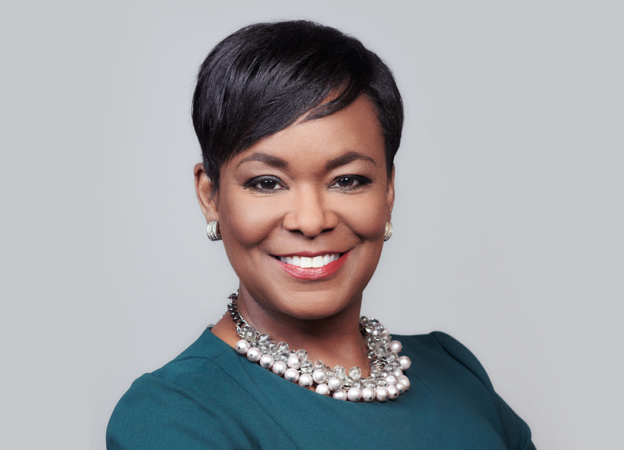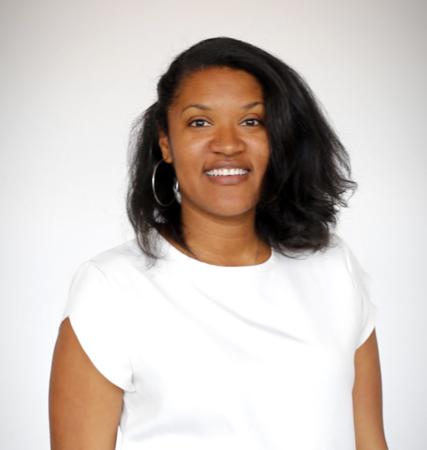As we move toward a world that is increasingly and undeniably reliant on digital technologies, it’s pretty safe to declare that tech is the way of the future.
But what about the 19 million Americans who don’t have access to the resources that make that future possible?
Verizon is making a commitment to step in and change that. The tech leader lives the ethos that “The future is for everyone,” and thanks to its responsible business plan, it’s ensuring that those digital futures become a reality.
Enter Rose Stuckey Kirk, Senior Vice President and Chief Corporate Social Responsibility Officer for Verizon, who heads the team responsible for leveraging the technology and resources that help drive positive societal change for vulnerable populations. In her 20+ years of working with Verizon, Kirk has seen the company bear witness to many social changes. In her current role, she oversees its corporate social responsibility investment strategy and its successful rollout.
The Fight for Digital Equity
The fallout from the COVID-19 pandemic highlighted societal inequities that we can no longer overlook, especially as the situation created major lifestyle shifts that led to heavy dependence on digital connectivity almost overnight. What became impossible to ignore was the fact that these inequities disproportionately affect communities of color.
“It shed a stark light on how internet access, affordability and application is indispensable to modern life — from education to health care, jobs, business, community and even COVID-19 vaccinations — and how America’s quest for digital equity and equality still has a long road to go,” says Kirk.
Citizen Verizon, the company’s responsible business plan, conceived before the pandemic, focuses on tech-fueled solutions to those key societal issues faced by underserved communities in the areas of digital inclusion, climate change and workforce development.
With roots in a small Arkansas town, Kirk credits her upbringing with fostering her love and commitment to education. Citizen Verizon builds on that commitment and focuses on leveraging its technology, including 5G, to create a long-lasting and sustainable impact.
Recognizing that many communities, especially those largely serving people of color, often don’t have equal access to technology and training, Kirk’s team identified a crucial gap to fill.
“Our extensive research showed that there were children living in the same zip code — often only miles apart — who had fundamentally different learning experiences, especially as it related to tech access and application. One school would have high-tech labs, robotics classes and other tech-forward curricula, while another didn’t even have WiFi. Also, while access to connectivity and tablets is important, students must also know how to use tech resources to enrich their learning experiences..”
According to Kirk, the lack of digital inclusion for communities of color “was bigger than solving an educational issue. In our view, we needed to address a critical societal issue.”
So Verizon got to work.
Driving Change Through Action
Through its commitment to invest $3 billion into those communities during 2020 through 2025, Verizon wants to close that digital divide and skills gap, and foster digital inclusion that levels the playing field.
“Digital inclusion is about creating equity and equality,” explains Kirk.
Verizon’s mission, she continues, doesn’t stop there. It aims to address other critical issues that affect people in vulnerable populations who are invariably hit hardest when disaster strikes. “Inequities around race, gender, age, disability, income and other factors put certain populations at increased risk.”
Citizen Verizon has a large task ahead, but it’s one that Kirk feels confident can be met head-on. Its aims are to
- Provide 10 million youth with digital skills training by 2030
- Support 1 million small businesses with resources to thrive in the digital economy by 2030
- Prepare 500,000 individuals for jobs of the future by 2030
- Achieve net-zero carbon emissions in its operations by 2035
And in a program that speaks to Kirk’s educational roots, Verizon is partnering with Historically Black Colleges and Universities, Hispanic-Serving Institutions and community colleges across the country to expand upon its Verizon Innovative Learning education initiative. This project, which began in 2012, provides free connectivity, tablets, innovative learning programs and tech training to schools, teachers and students.
Verizon’s vision for a digitally connected future is truly for everyone.
“Ultimately, technology isn’t about connectivity or hardware. It’s about people and communities, cities and nations, and the world in which we live,” says Kirk. “And we want to help uplift as many communities as we can.”
Learn more about Verizon’s efforts to bring digital inclusion to every community.
This editorial is brought to you in partnership with Verizon.


